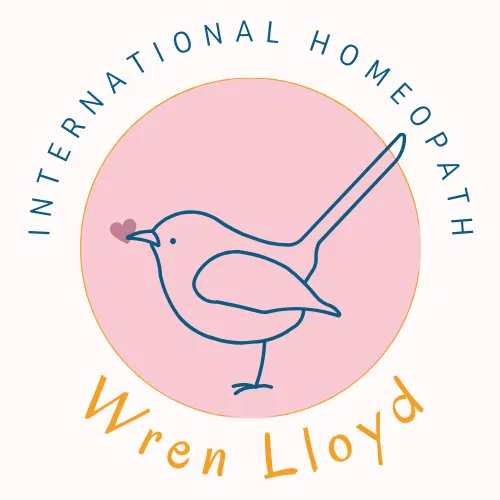
Dental Cavitations & Homeopathy
Dental Cavitations and Homeopathy
If you’ve ever had a tooth extracted, undergone a root canal, or experienced trauma to your jaw, you may have unknowingly developed a dental cavitation. Cavitations are areas in the jawbone where healing has been incomplete, leading to infection or dead tissue. These can cause chronic health issues—sometimes in ways that don’t seem directly connected to dental health.
As homeopaths, we recognise that dental cavitations can strain the body’s vital force. They act as a chronic source of stress, contributing to systemic inflammation, immune dysfunction, and even exacerbating neurological symptoms. The good news? Homeopathy offers a gentle, supportive approach to help your body heal, particularly when paired with care from a skilled biological dentist.
What Are Dental Cavitations?
Cavitations occur when the bone doesn’t heal properly after a procedure or injury. This can leave behind a pocket of necrotic (dead) bone or infection. Common causes include:
Tooth extractions, especially wisdom teeth.
Root canals.
Physical trauma to the jaw.
Poor blood supply or immune function during healing.
Symptoms can vary. Some people have localised jaw pain or sensitivity, while others notice systemic effects like fatigue, headaches, neuralgia, or worsening chronic health conditions.
How Can Homeopathy Help?
Homeopathy works to restore balance and vitality to the whole person, making it a perfect fit for addressing cavitations. Remedies can:
Support the body’s natural ability to heal and regenerate bone.
Reduce pain, inflammation, and infection.
Assist detoxification pathways to manage the systemic effects of cavitations.
Address emotional stress or trauma associated with dental procedures.
Common Remedies for Cavitations
Here are some remedies I often recommend when working with clients dealing with dental cavitations:
Hypericum: Known for its affinity with nerve-rich areas, this is brilliant for pain and sensitivity after dental surgery. It is also one of the best remedies for infection.
Arnica montana: The classic remedy for bruising and trauma, helping to reduce swelling and promote healing after extractions or surgeries. It shouldn't be taken in great quantities straight after extractions as it will help the body to reabsorb clots and the clot in the empty tooth socket is needed to protect the socket from infection. Be sure not to disturb that clot.
Hepar sulphuris: For infections that are sensitive to touch, especially if there’s pus.
Silicea: Helps the body expel toxins and supports the healing of bones and tissues. It will also, gradually, help the body to expect fragments of tooth that have been left behind during extraction.
Calcarea phosphorica: A go-to remedy for bone healing and strengthening. Often combined with calcarea fluorica. Can be used in tissue salt combinations.
Mercurius solubilis: If there’s infection with bad breath, metallic taste, or gum sensitivity.
Symphytum: Known as the “bone-knitter,” it’s excellent for jawbone recovery and fractures.
A nice combo for infection: gunpowder / pyrogen / hepar sulph. This 'sepsis' mix can be found in many homeopathic pharmacies and is a great go to for infections that rumble on, unresolved.
This, and many more great ideas can be found in my teeth healing course.

Homeopathy and Holistic Care
Homeopathy works beautifully alongside dental interventions, especially when you’re working with a biological dentist experienced in cavitations. Here’s how it fits into the bigger picture:
Pre-Surgery Support: Remedies can help reduce anxiety and prepare your body for healing. [ie. aconite].
Post-Surgery Recovery: Remedies speed healing, reduce inflammation, and assist detoxification. [arnica, given sparingly, can reduce pain and swelling immediately after extractions.]
Constitutional Care: By addressing your unique constitution, homeopathy strengthens your overall vitality, ensuring your body can handle healing and any underlying challenges.
The Bigger Picture
Healing cavitations isn’t just about localised bone health—it’s about addressing the whole person. Many clients I’ve worked with have seen improvements not only in dental symptoms but also in their energy levels, mood, and overall health.
I always recommend working with a practitioner who understands both cavitations and systemic health. A biological dentist can diagnose and treat cavitations surgically if needed, while a homeopath can guide you with remedies to maximise healing and balance.
Sources and Further Reading
“Jawbone Osteonecrosis and Systemic Health”
“Hypericum and Arnica: Homeopathic Allies in Dental Recovery”
Biological Dentistry Explained
International Academy of Biological Dentistry and Medicine (iabdm.org).
“Cavitations in Dental Health: A Silent Epidemic”
Weston A. Price Foundation.

![Wren is an international homeopath based in the UK. She specialises in working with people with autism/ PANS/ PANDAS/ ADHD, mold illness and gut issues internationally.
She has successfully worked with many children and their families worldwide since 2016, using classical homeopathy and homeopathic detox therapy, forming the team International Homeopaths for Autism.
Wren has carried out pioneering work on treating fungi [mold / mould and yeast] illness, especially in the context of autism.
She writes courses for homeopaths and users of homeopathy.](https://storage.googleapis.com/msgsndr/ZXNhQRArkMV3fugK80Gt/media/66917f5166cf9093a2d33917.png)